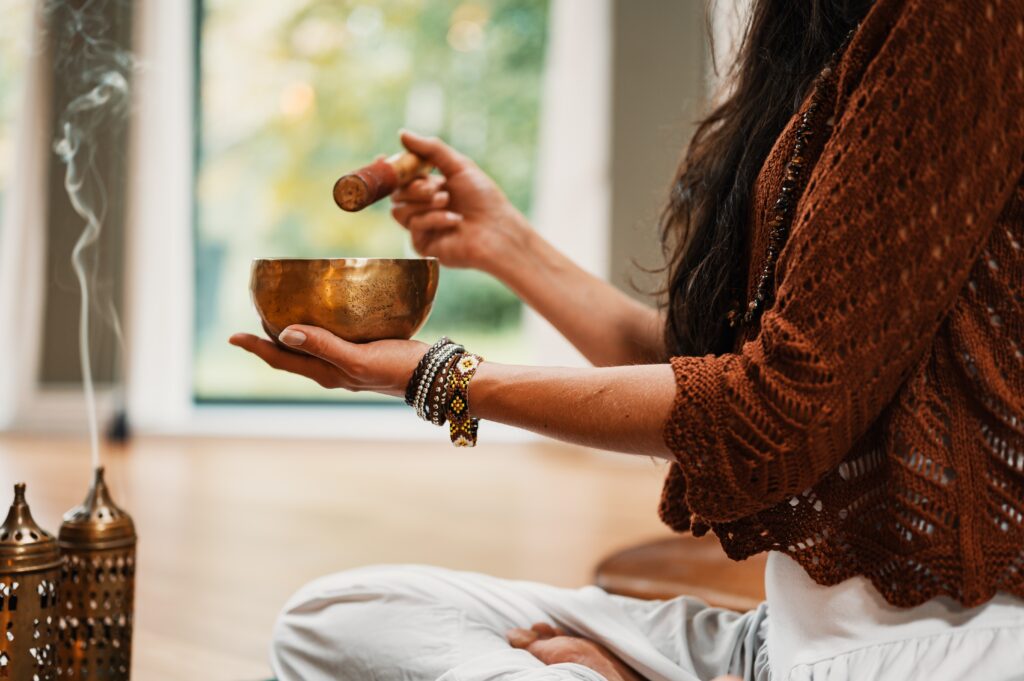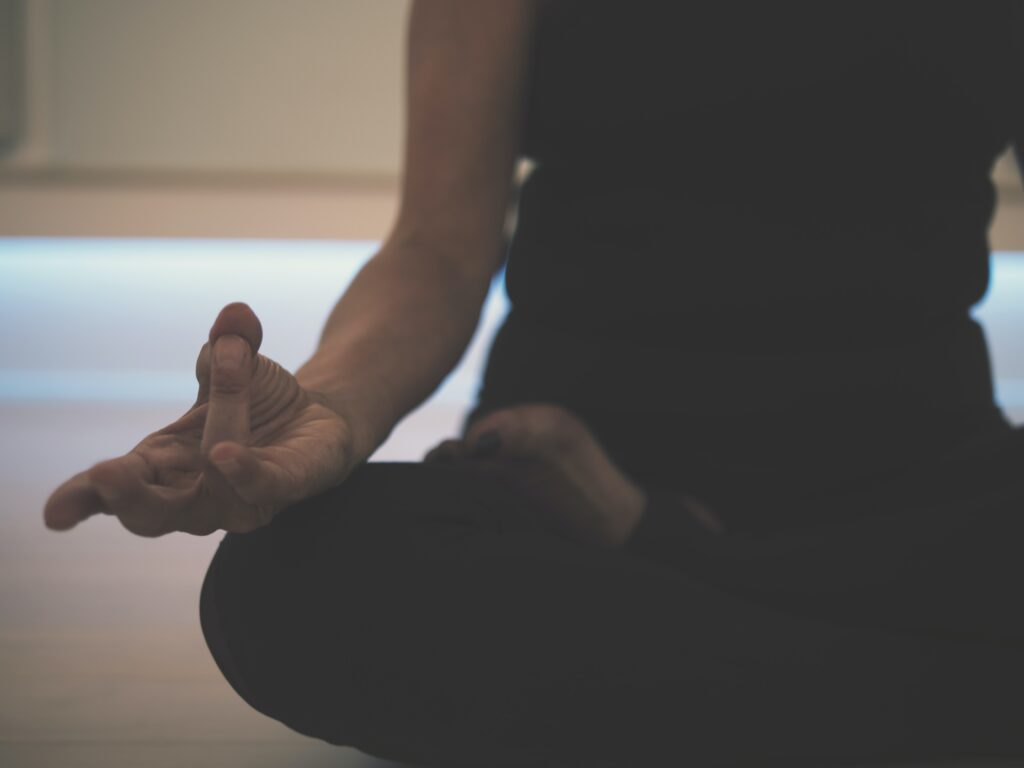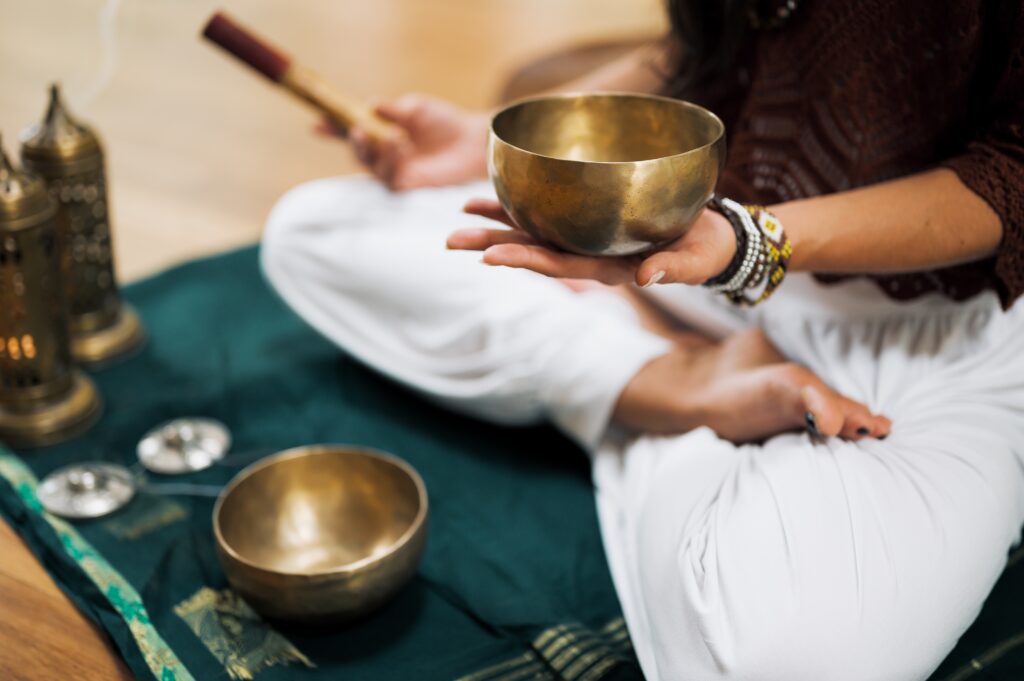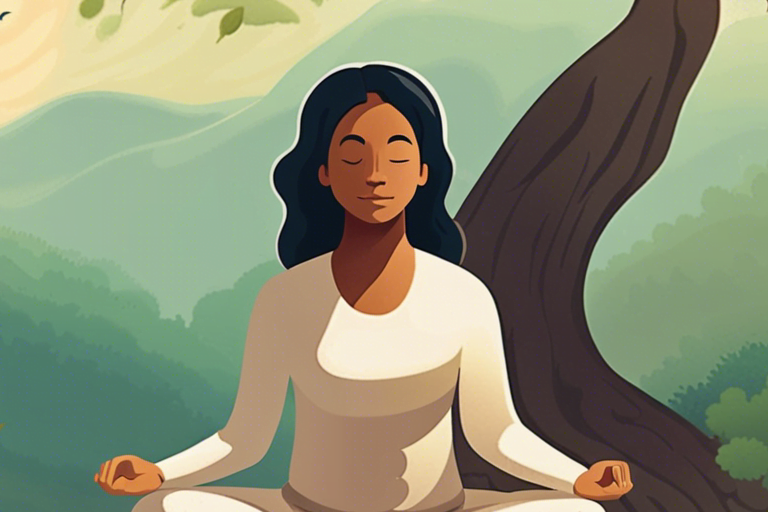The rise of spirituality in modern culture has led to a shift in how people approach their lives and seek solace in the fast-paced digital world. Young gurus and “spirit junkies” are promoting the benefits of spirituality, bridging the wisdom of psychology with the depth of spirituality. The concept of being “in the flow” is not exclusive to spirituality, as writers, artists, and athletes have experienced it in various fields. When stressed, our thinking can suffer, and we may try to find patterns where there are none. Surrendering control and trusting others is ingrained in us as a species, offering a sense of security and stress relief. Meditation plays a key role in quieting the areas of the brain that act as brakes, allowing us to enter a flow state more quickly. Ultimately, getting out of our own way and relinquishing control can be accomplished through methods beyond our usual mode of thinking, and flow may be a manifestation of our brain working optimally. In this blog, we explore the intricate dance between the mind and the spirit, discussing topics such as mindfulness techniques, cognitive behaviors, ancient spiritual traditions, and the science of meditation. Join us as we embark on a journey of mindful living, inner exploration, spiritual sciences, understanding different traditions, and techniques for personal healing and growth.

The Mainstreaming of Spirituality
In recent years, there has been a significant increase in the mainstream acceptance and popularity of spirituality. Young gurus and “spirit junkies” have emerged, actively promoting the benefits of spiritual practices and beliefs. What was once considered a niche or alternative pursuit has now become a widely embraced lifestyle choice.
This shift towards spirituality can be attributed to several factors. Firstly, there has been a growing dissatisfaction with the materialistic and consumer-driven culture that dominates our society. People are seeking something deeper and more meaningful in their lives, and spirituality provides that sense of purpose and fulfillment.
Furthermore, the rise of social media and the internet has made spiritual teachings and practices more accessible than ever before. Online communities and platforms have enabled individuals to connect with like-minded people, share their experiences, and learn from experts in the field. This increased connectivity has created a sense of belonging and support for those exploring their spiritual paths.
Additionally, the emphasis on personal well-being and self-care has also played a role in the mainstreaming of spirituality. People are recognizing the importance of taking care of their mental, emotional, and spiritual health, and are turning to spiritual practices such as meditation, mindfulness, and yoga as tools for self-care.
The Concept of Being ‘In the Flow’
The concept of being “in the flow” is not exclusive to spirituality. Many individuals in various fields, such as writers, artists, and athletes, have experienced this state of heightened focus and creativity. Being in the flow refers to a state of complete immersion and absorption in an activity, where one’s sense of self and time seems to dissolve.
When in the flow, individuals often report feeling a sense of effortless ease, heightened concentration, and a deep connection to the task at hand. Time seems to pass quickly, and distractions fade away. This state is often associated with peak performance and a sense of fulfillment and satisfaction.
In the realm of spirituality, being in the flow takes on a deeper meaning. It is not just about achieving optimal performance in a specific task but rather about aligning with a greater universal energy. When in the flow, individuals feel connected to something greater than themselves, tapping into a source of inspiration and wisdom.

The Influence of Stress on Thinking
When we are under stress, our thinking can be greatly impacted. Stress activates the fight-or-flight response in our bodies, flooding our system with stress hormones such as cortisol and adrenaline. This physiological response is designed to help us deal with immediate threats, but it can hinder our cognitive abilities and decision-making processes.
Under stress, our thinking becomes more rigid and focused on survival. We may become hyper-vigilant, scanning for potential threats and dangers. This narrowed focus can lead to tunnel vision, making it more difficult to see the bigger picture or consider alternative perspectives.
Stress can also disrupt our ability to think logically and critically. We may find ourselves jumping to conclusions, making snap judgments, or looking for patterns where there are none. This is known as confirmation bias, where we seek out information that confirms our existing beliefs or biases and disregard contradictory evidence.
It is crucial to recognize the impact of stress on our thinking and take steps to manage and mitigate its effects. By reducing stress through practices like meditation, mindfulness, and self-care, we can improve our cognitive abilities and make more informed and rational decisions.
The Power of Surrender
As human beings, we are wired to seek control and certainty in our lives. We have a natural inclination to plan, organize, and try to predict and control outcomes. However, there is immense power in surrendering control and learning to trust in the unknown.
Surrendering control can be incredibly liberating and stress-relieving. When we let go of our need for control and surrender to the flow of life, we open ourselves up to new possibilities and experiences. We learn to trust that everything will unfold as it should and that we are supported by a greater force or intelligence.
Surrendering control does not mean giving up or being passive. It is about finding a balance between taking inspired action and trusting in the process. It is about releasing attachment to outcomes and embracing the present moment, knowing that the universe has a greater plan for us.
Practices such as meditation, prayer, and mindfulness can help cultivate a sense of surrender and trust. By quieting the mind and connecting with our inner wisdom, we can tap into a deeper sense of knowing and surrender to the flow of life.

Meditation and the Brain
Meditation is a powerful tool that can help quiet the areas of the brain that act as the “brakes” on our thinking process. These areas, known as the default mode network, are responsible for self-referential thinking, mind wandering, and rumination.
When we meditate, we shift our attention away from these default mode networks and into a state of focused awareness. This allows us to quiet the incessant chatter of our minds and enter a state of presence and calm. By quieting the brain, we can more easily access the flow state and tap into our creativity and intuition.
Furthermore, meditation has been shown to increase the thickness and connectivity of certain brain regions associated with attention, emotion regulation, and empathy. These changes in brain structure and function can result in improved cognitive performance, emotional well-being, and overall mental health.
Research has also shown that regular meditation practice can lead to changes in the brain’s default mode network, reducing self-referential thinking and increasing present-moment awareness. This rewiring of the brain can help us more easily enter the flow state and experience the benefits of being fully engaged in the present moment.
Methods of Letting Go
Letting go and relinquishing control can be achieved through various methods that go beyond our usual mode of thinking. These alternative approaches can help us get out of our own way and create space for new possibilities to emerge.
One method is through the practice of surrender and mindfulness. By becoming aware of our thoughts and emotions without judgment, we can detach ourselves from them and create a sense of inner spaciousness. This allows us to observe our thoughts and feelings without being consumed by them, giving us the freedom to choose how we respond rather than react.
Another method is through the use of visualization and creative expression. By engaging in activities such as painting, writing, or dancing, we can tap into our subconscious mind and access deeper layers of our being. These creative outlets allow us to release control and let the process unfold naturally, leading to new insights and breakthroughs.
Additionally, somatic practices such as yoga, tai chi, and breathwork can help us release physical and emotional tension stored in the body. By focusing on our breath and allowing energy to flow freely, we can create a sense of ease and flow within ourselves.
Overall, the key to letting go is to cultivate a sense of trust and surrender, allowing ourselves to be guided by something greater than our individual selves. By relinquishing control and embracing the unknown, we open ourselves up to new experiences, growth, and transformation.
Flow as Optimal Brain Function
The concept of flow is not limited to spiritual or creative experiences; it can also be seen as a manifestation of optimal brain function. When we are in a flow state, our brains are working in ideal conditions, allowing us to perform at our peak.
In the state of flow, we experience a heightened sense of focus, clarity, and concentration. Our brains enter a flow state, where neural networks become highly connected, and information flows effortlessly. This state of hyper-focus allows us to perform tasks with greater speed, accuracy, and efficiency.
Research has shown that flow states are associated with increased productivity, creativity, and overall well-being. When we are in flow, we feel a deep sense of satisfaction and fulfillment, as we are fully engaged and absorbed in the task at hand.
Flow states can be cultivated and accessed through various methods, such as setting clear goals, challenging ourselves, and finding activities that match our skills and abilities. By creating the right conditions and mindset, we can tap into the power of flow and experience optimal brain function.
Mindful Living
Mindful living is a practice that involves bringing conscious awareness to our thoughts, emotions, and actions in the present moment. It is about cultivating a state of open curiosity and non-judgment, allowing us to fully engage with each moment and experience life more deeply.
The exploration of daily practices is a fundamental aspect of mindful living. This includes simple activities such as eating, walking, and breathing, which are often done on autopilot. By bringing awareness to these activities, we can experience them with a renewed sense of wonder and appreciation, enhancing our overall well-being.
Challenges and insights are also an integral part of mindful living. As we become more aware of our thoughts and patterns of behavior, we may uncover deep-rooted beliefs and conditioning that no longer serve us. This self-awareness gives us the opportunity to make conscious choices and create positive change in our lives.
Mindful living is rooted in both psychological principles and spiritual teachings. From a psychological perspective, mindfulness has been shown to reduce stress, improve emotional regulation, and enhance overall mental health. From a spiritual perspective, mindfulness allows us to connect with our inner wisdom, cultivate compassion and gratitude, and experience a deeper sense of interconnectedness with all beings.
Inner Journeys
Inner journeys involve diving into the depths of the human psyche, exploring the complexities of emotions, behaviors, and the transformative power of self-awareness. By embarking on an inner journey, we can gain a deeper understanding of ourselves and others, unlocking hidden potentials and facilitating personal growth.
Understanding emotions and behaviors is a fundamental aspect of inner journeys. Through self-reflection, introspection, and therapy, we can uncover the deeper meaning behind our emotions and behaviors. This awareness allows us to make conscious choices and develop healthier ways of relating to ourselves and others.
The transformative power of self-awareness is one of the greatest gifts of inner journeys. By shining a light on our unconscious patterns and conditioning, we can break free from limiting beliefs and self-sabotaging behaviors. This process allows us to step into our authentic selves, align with our values and passions, and create a life of purpose and fulfillment.
Inner journeys can take many forms, including therapy, meditation, journaling, and self-reflection exercises. It is an ongoing process of exploration and self-discovery, leading to profound personal growth and transformation.

